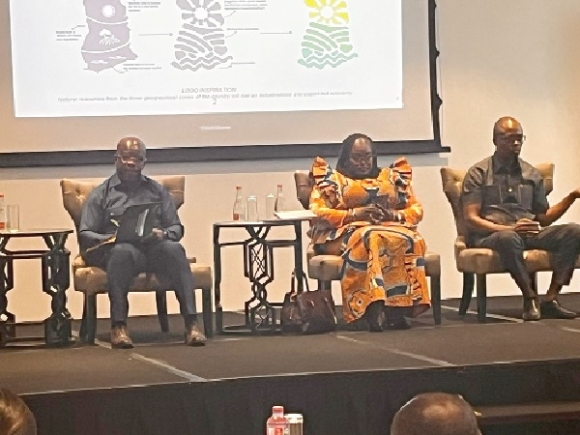The government and public sector leaders have outlined plans to drive Ghana’s 24-hour economy agenda, with a focus on solving long-standing structural issues and expanding job opportunities.
The Head of Strategy and Programmes at the 24-Hour Economy Secretariat, Abdul Nasser Alidu, disclosed that the initiative was built around specific projects designed to tackle major growth barriers, including energy, access to finance and land.
“These are the areas of the economy where we believe we can have the biggest impact. So, we are designing projects that directly address these constraints, particularly for the industrial and agroecological parks we are setting up,” he said.
He was speaking at the “Leadership Dialogue Breakfast Meeting” organised by Berkha Africa and the Institute of Directors–Ghana (IoD-Gh) on the theme: “Innovating for Growth: Adapting Business Models to Ghana’s 24-Hour Economy.”
Energy and finance
To support industries with low-cost energy, he revealed the government was exploring a mix of solar, bio and grid power aimed at reducing industrial power tariffs to below seven cents per kilowatt-hour.
On access to finance, a value chain financing scheme is being introduced to offer business loans at rates below 12 per cent without subsidies, but by removing structural bottlenecks in the lending process where land is also in focus.
Mr Alidu explained that a participatory land access model will be used to ensure that land is affordable for commercial use, while also providing benefits for host communities.
“We are not interested in doing endless pilot projects. Between now and the end of the year, we are focusing on preparing and testing feasibility of bankable projects that the private sector can invest in,” he said.
Innovation
The Director-General of the State Interests and Governance Authority (SIGA), Professor Michael Kpessa-Whyte, said the public sector would remain a major driver of the 24-hour economy.
He pointed to the need for better transport links, land, water and air to support movement of food and goods across the country and for export.
He also highlighted how SIGA’s performance contracts with public entities will now include 24-hour economy components.
“We need to align key performance indicators to this vision so that entities move beyond the 9 to 5 routine and expand shifts where possible,” he said.
On financial accountability, Prof. Kpessa-Whyte said SIGA was offering training for boards and CEOs to prevent fiscal slippages.
“We are training the boss of the companies who wants to run the 24hour economy so that they do not run at a lost”.
